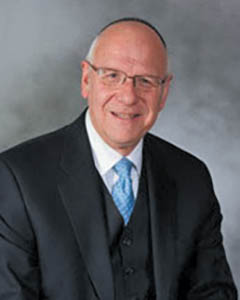
The story that unfolds in this week’s haftarah is a seemingly simple one. Taken from the Book of Melachim II, the haftarah requires some background. When the northern kingdom of Israel broke away from the Davidic dynasty after the death of Shlomo Hamelech, they also broke away from the proper worship of Hashem. In an attempt to remain independent and distinct from the tribe(s) in the south, their first king, Yerovam ben Nevat, forbade his subjects from worshipping in the Beit Hamikdash in Yerushalayim. Instead, he set up golden calves in Dan and Bet El and declared that these were the gods they were to worship, or, more correctly, these gods would represent the God of Israel and should therefore be worshipped. This idolatry continued for hundreds of years—until the exile of the northern tribes.
As the chapter leading up to our haftarah explains, the northern tribes and their king, Yehoram, suffered under the constant threat of their powerful neighbor to the north, Aram. When the Aramean king Ben-Haddad besieged the Israelite capital of Shomron, famine raged in the city and many starved. When Yehoram walked upon the walls of the city in an attempt to give courage and hope to his people he was accosted by a woman who related the horrific story of herself and another woman who, in their hunger, agreed to eat the flesh of their children. The king tore his royal garments (revealing the sackcloth he wore beneath) and, in anger, he sought out the navi Elisha, whom he blamed for the tragic situation in the city. Elisha promised him that within 24 hours there would be more than enough food for the starving residents of Shomron. When the king’s captain mocked the promise of Elisha, the prophet told him that he will see the truth of his promise but never eat from the surplus of food that God would provide.
And it is at this point that our haftarah begins. The very first words reveal the reason for its choice as the haftarah for the parsha of Metzora for they speak of four metzora’im who dwelt outside the besieged city—just as the parsha demands metzora’im should do—and discover that the besieging enemy had fled from the city in a panic. They report the news to the king who investigated and finds that the report is true and, by dawn’s light, the starving people rush to the abandoned camp and ease their hunger with the provisions left by the fleeing Arameans. As the navi had predicted, there was a surplus of food for all and, as Elisha had said, the king’s captain was trampled by the mad rush of the people and was unable to eat of the food that God miraculously supplied to the people.
There is, I believe, an important lesson to be learned from this story. The nation was saved by metzora’im—people who were banished, separated and shunned—yet they were God’s choice as instruments to bring salvation to a suffering nation. It is essential for us to learn that we are not the ones to decide who will save us and who will not. Hashem makes this decision and it is up to us to recognize His hand in the miracles, even when we believe that the miracles were brought about through individuals we consider as dwelling “out of the camp.”
When God sees His people in pain, He will choose whoever He can to be His instrument to save His nation.
A vital lesson we must take to heart.
By Rabbi Neil N. Winkler
Parshiyot Tazria-Metzora
Rabbi Neil Winkler is the Rabbi Emeritus of the Young Israel of Fort Lee and now lives in Israel.











